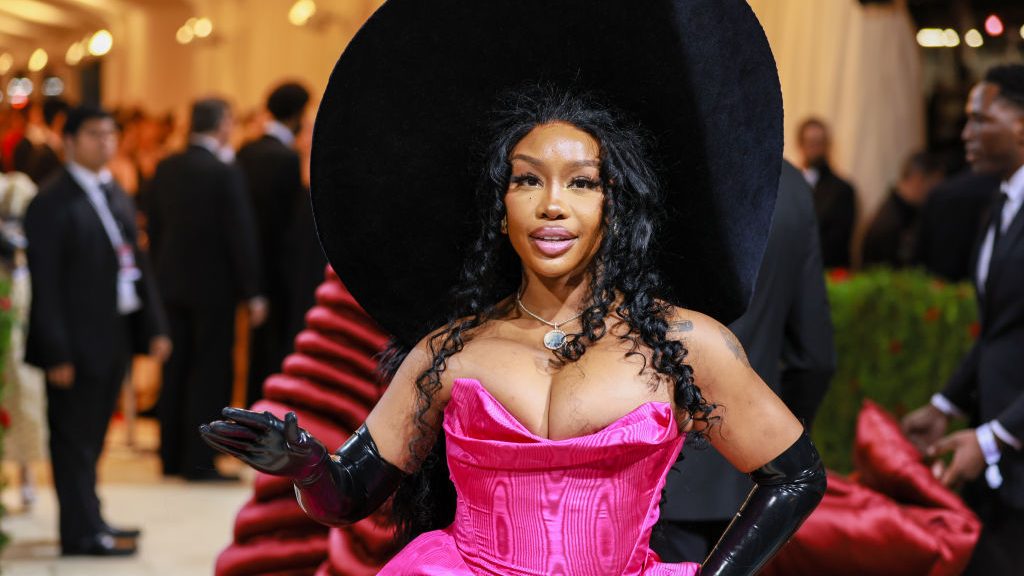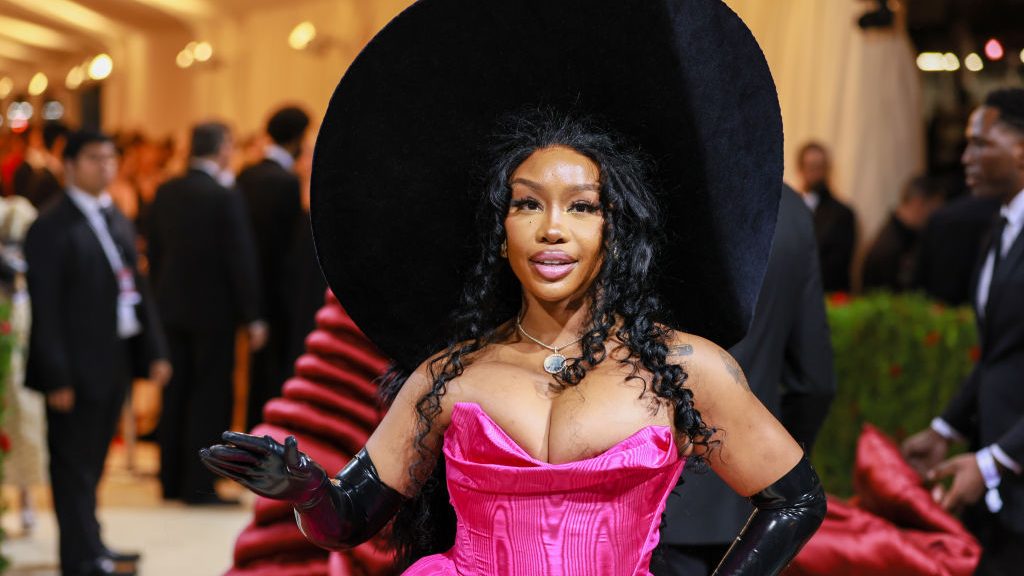SZA mistook a life coach for a therapist. Here’s how to tell the difference
Ahead of National Stress Day, theGrio breaks down the differences between the professionals who can support your mental health.
For those seeking a mental health professional, many different options exist today, all of them offering different levels of support. While this is a good thing, it can be challenging or outright confusing to know which is the best option for you; just ask SZA.
The “Kill Bill” singer recently told the Wall Street Journal about her experience mistaking a life coach for a licensed therapist. According to SZA, the practitioner had taught her a box-breathing exercise that failed to help her in an emergency situation.

SZA said, “After I had box-breathed myself for three months and didn’t get better, I called her in a f—ing frenzy like, ‘I’m about to commit myself to an institution today; I need help!’ I said, ‘What form of therapy do you do?”
The woman explained to the singer that she wasn’t a licensed therapist but a life coach, meaning she didn’t have a clinical form of therapy. As SZA explained, it was only the latest type of therapy she had tried; she’s also explored hypnotherapy, talk therapy, psychiatry, and acupuncture to deal with the acute anxiety she often experiences, especially during high-profile events.
“Sometimes when I’m in those situations, it makes me more anxious because I’m like, ‘Damn, they’re about to judge me for being a bitch, or quiet, or looking rude,'” she said. “It’s everything; it’s not you, it’s me, and I’m freaking out, and I don’t know how to be any different right now.”
SZA is far from alone — and ongoing anxiety can have extreme repercussions. New research suggests chronic stress correlates with an increased risk of heart disease for Black Americans, making support in managing stress vital to our communities. As National Stress Day is commemorated on Nov. 1, we have rounded up advice on understanding the difference between the various wellness and mental health practitioners available.
Life coaching
A professional life coach is someone who can help you deal with the here and now and help you strategize on getting to where you want to be in the future. According to Psychology Help (an affiliate of the online therapy platform Better Help), a life coach is a mental health professional with a life coaching certificate. Compared to therapists and psychologists, life coaches typically work with clients for shorter periods and do not diagnose or treat mental health conditions. They instead work with clients on establishing goals and outlining a path to achieving them.
In short, a life coach is who you see when you need to boss up.
Acupuncture and other wellness practices
Emotional well-being is a tenet of wellness, and many individuals have found emotional well-being through maintaining various wellness practices, including acupuncture. The Black Acupuncturist Association defines acupuncture as the “use of thin filiform (solid) needles into designated points of the skin to achieve energetic, emotional, and physical healing.” Needle phobias notwithstanding, many agree the act of sticking needles in certain meridians of the body relieves toxins and promotes greater mental well-being.
Talk therapy
There are many different types of therapy that all tend to have the same goal: developing a treatment approach based on a mental health diagnosis such as anxiety, stress, depression, post-traumatic stress disorder, and more. Psychologists and therapists often help clients develop better communication and coping skills while addressing and healing from disruptive events or circumstances.
Licensed professional therapist Greg Lozano told Real Simple, “Therapy involves a more insightful and health-oriented approach. It also tends to have an emotional component to it that requires more care in its use when applying it. In coaching, there is [less or none of this] emotional component, but rather more guidance than a connection.”
While life coaching may cost out of pocket for most, therapy is often covered by insurance. Resources such as Therapy for Black Girls, Therapy for Black Men, and Therapy For Black Families can help Black people locate Black therapists in their area.
Hypnotherapy
The thought of being hypnotized, or losing consciousness and allowing someone else to take control, may at first seem counterintuitive to healing. At best, it could sound embarrassing — at worst, sinister. However, the Clinicians of Color swear hypnotherapy is not the “devil’s work.”
The organization dedicated to helping people of color find culturally competent mental health resources explains hypnotherapy as similar to what you’d see in a magic show. However, the rapid induction in which people during a performance are sent into a trance through shocking methods (like when the hypnotist snaps their fingers), is far less dramatic and yet taken far deeper during hypnotherapy.
While hypnotherapists are trained in rapid induction, the Clinicians of Color said, “Additionally, we are highly skilled at developing rapport, helping the client to relax, induce a trance state, and craft powerful therapeutic and subconscious suggestions for healing.”
Psychiatry
Psychiatry and psychology (or talk therapy) are often confused with one another because both involve a patient meeting regularly with a physician to discuss their mental state. However, according to the American Psychiatric Association, a psychiatrist is a medical doctor who can not only diagnose and help find the psychological root cause of a problem but also prescribe medication and other forms of treatment for the patient, if necessary.
Emotional crisis
While most psychiatrists or therapists have emergency lines to assist clients in the event of a crisis, many clients may panic or remain unsure of what to do when they need emergency help with their mental health. Ironically, SZA did the right thing by contacting someone she thought was a therapist.
If you don’t have a therapist or psychiatrist, there are a plethora of local crisis resources available, including dialing the National Suicide Prevention and Emotional Crisis hotline or 988 (no matter where you are in the country). Dialing 988 can be scary; however, it can be a life-saving step available 24 hours each day.
TheGrio is FREE on your TV via Apple TV, Amazon Fire, Roku, and Android TV. TheGrio’s Black Podcast Network is free too. Download theGrio mobile apps today! Listen to ‘Writing Black’ with Maiysha Kai.


